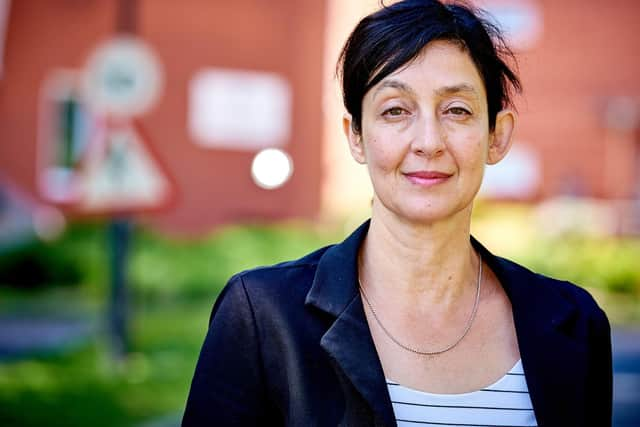Community nursing will not be the same anymore, health boss speaks out on life after lockdown
However, the work they do to treat patients at home, in care homes or to offer sports injury physiotherapy or emergency mental health treatment to teenagers has carried on regardless.
Staff have put themselves at risk and their families under strain and, while the chief executive of Leeds Community Healthcare Trust has paid tribute to her staff, she says healthcare is unlikely to be the same again.
Advertisement
Hide AdAdvertisement
Hide AdHaving been forced to scrap face to face appointments, almost overnight, technology is now being used to operate a system that Thea Stein admitted had been guilty of doing things in a certain way because it always had to.


"We did have to make a decision about how to close services down but make sure we see the most in need and change the way we work compliant with PPE and COVID. It was very quick and exciting at the beginning. The important thing is that these services are there."
There are around 3,000 members of staff working across Leeds and Yorkshire and they can be seeing several thousand patients at a time.
For example, if someone was seeing a physiotherapist for a sports related knee injury this was deemed non urgent and patients were offered excercises to follow at home. On the other hand, Leeds Mental Health Well-being is open via, phone, Zoom and online. If a young person is referred they have been seen in four hours, as they would have been before social distancing.
Advertisement
Hide AdAdvertisement
Hide AdFollow up appointments and check ins between health teams and patients are being done over the phone, therapy sessions online but then audio and hearing tests for children have to be done in person.
Ms Stein said: "We have not been able to do everything the same way. Staff are innovative and creative, thinking about different ways of support for people, alternatives at home and what we can do online. It has been a real challenge to think of different ways of doing things."
And it will continue, although services will have to be mindful that not everyone is comfortable with using the digital means.
By its nature community nursing is about working with people and dealing with deaths from coronavirus has been "distressing" for staff, added Ms Stein.
Advertisement
Hide AdAdvertisement
Hide AdShe said: "In district nursing, there is end of life support, we are used to dealing with death, working in care homes. But, for some of them they have dealt with numbers or levels that they have not dealt with. Dying from COVID is not a simple or easy death. It has been distressing and very emotional for some staff.
"I don’t know when COVID will be done. It would be good if there was a vaccine and go back to a more normal. But the new normal means we have to run services with social distancing and ensure people can be treated in a socially distanced way with infection control measures in place.
"It will mean that we can’t run services at the speed they were before. If you think of a building run clinic, we can’t do that anymore. There has been appointments we can’t do. They won’t be what health services look like."
Comment Guidelines
National World encourages reader discussion on our stories. User feedback, insights and back-and-forth exchanges add a rich layer of context to reporting. Please review our Community Guidelines before commenting.